Driving Toward Electrification (Part 1)
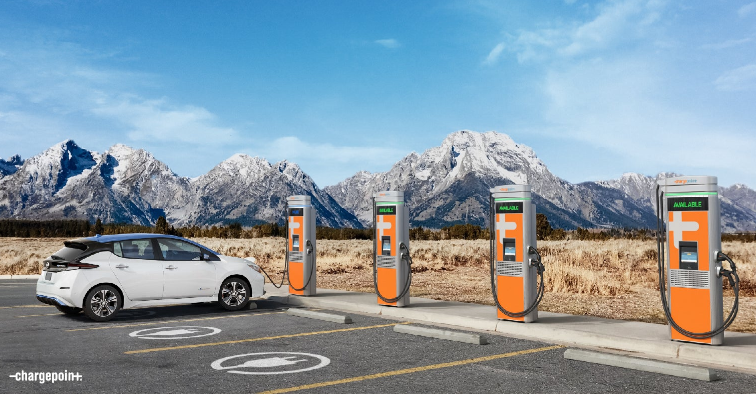
EV Charging Stations: A Resource Guide
As society makes the imperative shift away from fossil fuels and towards the path of full electrification, a key piece of the puzzle will be expanding and improving access to clean energy infrastructure.
Cultural institutions can play a major role in providing clean ‘green’ electricity to the public in the form of EV charging stations. More charging station ports means less reliance on our planet’s depleting reserve of fossil fuels and reduction of their associated emissions.
Yet adding and expanding EV charging capacity on your campus can be overwhelming when considering the myriad options. A series of questions that recently surfaced on the American Public Gardens Association (APGA) message board regarding EV charging stations at cultural institutions included the following:
- Does your institution have experience adding EV charging stations for public use?
- If so, does your organization charge a fee for public use, request a donation (via QR code or in-person), or allow charging free-of-cost?
- Were grants and/or other avenues of clean energy funding secured?
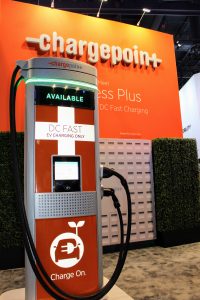
The Climate Toolkit has taken a deeper dive into the topic, consulting with staff at several of our partner organizations and conducting research into avenues of funding. The result is a living document and technical resource guide for expanding clean energy operations within your institution.
CHARGING STATION LEVELS:
There are three levels of EV charging stations currently available in the marketplace: Level 1, Level 2, and Level 3 (also known as DC Fast Charging or Supercharging).
- Level 1: using a common 120-volt household outlet, Level 1 charging is optimal for plug-in hybrid electric vehicles with smaller batteries. However, Level 1 is the slowest way to charge an EV and will most likely be insufficient for daily EV charging needs.
- Level 2: the most widely used level for daily EV charging, Level 2 charging utilizes a 240-volt connection to charge EVs approximately 7-10 times faster than Level 1. Level 2 chargers are capable of replenishing up to 80 miles of driving range per hour and are well suited for public or institutional charging needs. Charger costs and installation typically range between $500-$2000 per station.
- Level 3: otherwise known as DC Fast Charging and Supercharging, Level 3 is the fastest and most expensive type of EV charge available. Level 3 uses direct current (DC) as opposed to alternating current (AC) and utilizes a 400–900-volt connection. DC Fast Chargers and Superchargers can replenish an EV driving range of 3-20 miles per minute and come with an investment cost of tens of thousands of dollars.
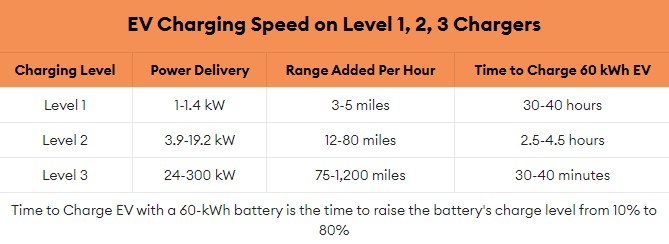
EV CHARGING EXPANSION PROJECTS:
- Duke Farms has two Level 2 ChargePoint stations. They are currently installing two DC Fast Chargers (150kw) and an additional six Level 2 chargers. Duke Farms is using Shell Recharge Solutions as their contractor, and all new charging stations will be online by the end of April. The new DCFC and Level 2 chargers were partially supported by grants. One major grant received ($200k) was from the Volkswagen Diesel Emissions Settlement administered by the New Jersey Department of Environmental Protection. Another grant for the make-ready costs and the Level 2 chargers ($65k) was from PSEG, their local utility. All the Duke Farms EV chargers are on an electrical circuit that is powered by their on-campus solar array. By the end of the year, the circuit will be powered at night by a battery energy storage system attached to a new array. Check out the video here – Totally 100% green electrons!
- Phipps Conservatory will be installing four (4) new dual (2-plug) Level 2 EV charging stations, which will bring the total number of EV plugs on campus to eleven (11). Up to 40% of the expansion project (or $60k) will be covered through a DEP Community Grant with local utility Duquesne Light Company (DLC) – including all costs between the grid and Phipps’ conduit hookup. Additional project funds are being procured through Driving PA Forward – a DEP clean energy program administered through the Volkswagen Diesel Emissions Environmental Mitigation Trust. All EV stations are free for staff, Board Members and volunteers at this time. Software will be included with the new EV stations which will allow Phipps the ability to monitor energy usage for the first time. The new stations will be available to the public on weekends for a charging fee. Phipps’ Level 2 chargers have a max output of around 7kW, which equates to roughly 30-35 miles of range added per hour of charging. Since most EV charging is done at home, this is a convenient way to top off when out and about.
- Representatives of the Climate Toolkit Facilities Listserv recommend exploring ChargePoint, Future Energy, EVConnect, and EVUnited for further charging station resources and consultation services.
CHARGING FOR PUBLIC USE:
- Morton Arboretum has had free charging stations in their main visitor lot for several years and just added chargers in three additional lots in the fall of 2022. Morton doesn’t charge for public use – they consider it an amenity as people are paying to visit the Arboretum.
- Duke Farms currently charges $0.12 per kWh for the Level 2 chargers for the first four hours. After four hours they charge a $5 per hour parking fee as an incentive to have the spot turnover. Duke Farms initially had them for free, but car dealerships were monopolizing the spaces and sometimes parking in their lot overnight. Duke Farms will be charging significantly more for the DCFC and are currently working with an energy consultant on a pricing model. As an incentive, Duke Farms allows free access for employees and volunteers through the charging app.
- Denver Botanic Garden will be installing two Level 2, dual-port stations, which they intend to charge for public use. Denver Botanic Garden also has EV charging stations for internal use that are free of charge to staff and is currently in the grant application process.
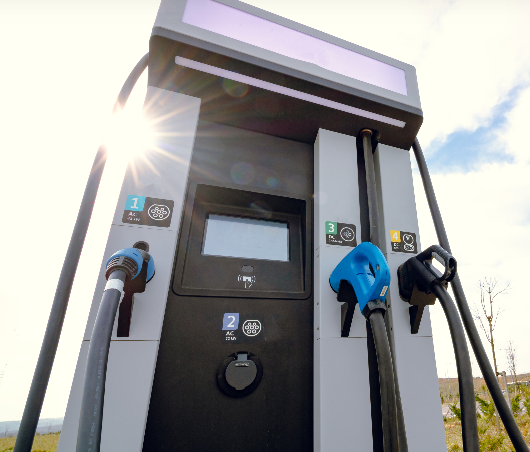
AVENUES OF FUNDING:
The following funding opportunities are available for US institutions. For institutions outside the US, please let us know about opportunities in your area!
VOLKSWAGEN DIESEL SETTLEMENT – Volkswagen Diesel Emissions Environmental Mitigation Trust
Remember when Volkswagen was caught circumventing their vehicle emissions control systems in 2015? Well, the fallout has resulted in significant amounts of clean energy funding ($14.7 billion nationwide!) being made available through the Volkswagen Diesel Emissions Settlement. Every US state has a division of this program. Money has been administered to each state’s Department of Environmental Protection and is available for grant application. Visit the Volkswagen Mitigation Trust, enter your state, and explore the funding opportunities available for your proposed EV expansion project.
CHARGEPOINT – Electric Vehicle (EV) Charging Incentives | ChargePoint
Another valuable resource collection which pools together links for each state’s National Electric Vehicle Infrastructure (NEVI) Formula Program, grant applications, alternative fuel infrastructure tax credits, rebate programs, local utility company incentives, alternative fuels incentive grants, commercial EV pilot programs, and discounts for fast charging infrastructure.
US DEPARTMENT OF ENERGY – INCENTIVES — https://afdc.energy.gov/laws/state
One additional resource to explore is the Alternative Fuels Data Center on the US Department of Energy site. Access to a well-organized incentives guide can be found with links to your state’s EV charging station rebates, grant incentive programs, Zero Emissions grants, tax credits, as well as relevant connections to regional utility companies and private incentive programs.
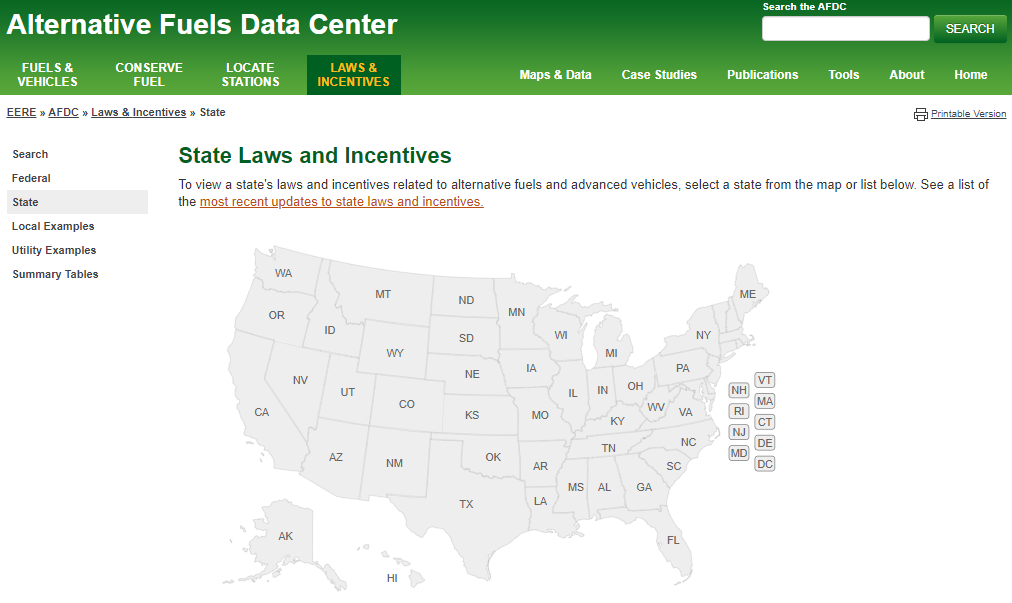
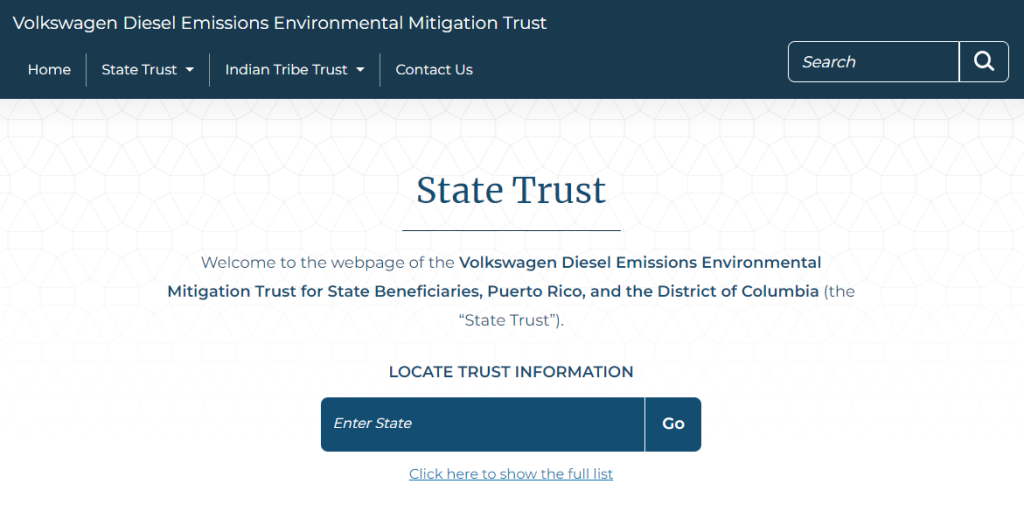
TAKEAWAY:
With this week’s final publication of the Intergovernmental Panel on Climate Change (IPCC) AR6 Synthesis Report, we understand that our institutions must take drastic climate action right now. We hope this resource guide can serve as a jumping off point for your EV charging expansion projects.
Please share your EV experiences with the Climate Toolkit listserv. To our international partners: Do you have additional global resources to include? Let us know. The work ahead is going to take a highly coordinated effort – all institutions, all hands on deck, all of us doing everything we possibly can.
SOURCES:
- ChargeHub – Electric Car Charging Guide
- ChargePoint – Electric Vehicle (EV) Charging Incentives
- Forbes Wheels – What Are The Different Levels of Electric Vehicle Charging?
- Intergovernmental Panel on Climate Change – AR6 Synthesis Report
- U.S. Department of Energy – Alternative Fuels Data Center
- Volkswagen Diesel Emissions Environmental Mitigation Trust – State Trust






Recent Comments